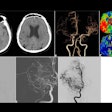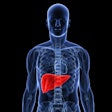
Simply talking about lung cancer screening causes smokers to think seriously about the consequences of their habit, and about quitting. But when smokers know that CT lung cancer screening is available, almost half opt to continue smoking, according to a new study in JAMA Internal Medicine.
In a comprehensive survey of long-term smokers offered screening by their primary care physicians, 49% described how the availability of CT screening actually reduced their motivation for quitting -- including the unfortunate (and incorrect) view that a CT screening test offers the same health benefits as quitting. Talking about CT screening also raised strong emotions among almost all participants.
"Healthcare professionals should be aware that the opportunity for early detection of lung cancer may be interpreted as a way of avoiding the harms of smoking," wrote the authors, led by Steven Zeliadt, PhD, from the Veterans Affairs (VA) Puget Sound Health Care System in Seattle (JAMA IM, July 27, 2015).
Becoming a reality
Annual low-dose lung cancer screening with CT has finally begun for long-term smokers, years after publication of National Lung Screening Trial (NLST) results in 2011, which showed a 20% mortality reduction with screening. The imaging exam received final approval from the U.S. Centers for Medicare and Medicaid Services (CMS) in late 2014.
"Little is known about how patients will respond to lung cancer screening as it moves from being offered as an exploratory intervention in the context of a clinical trial to a service with proven efficacy offered as part of routine care," Zeliadt and colleagues wrote.
The VA lung screening project aimed to evaluate lung cancer screening in routine clinical practice in preparation for large-scale screening at 151 VA centers, seven of which served as interview sites.
Semistructured telephone interviews were designed to elicit the veterans' views on smoking and their experience of being offered a lung cancer screening test and receiving the results.
The first interviews were conducted soon after individuals were offered screening, and the second interviews took place after participants received their first screening results. The participants received $50 for each interview. In all, 45 interviews were conducted in 37 individuals; eight were interviewed twice.
Emotions raised
Seventeen (49%) of 35 participants reported that CT lung cancer screening actually lowered their motivation to quit smoking. The study team identified three major themes related to how lung cancer screening seemed to influence attitudes and motivations around smoking cessation.
First, the screening discussion stimulated multiple complex emotions in the participants about smoking, the authors wrote. In fact, three individuals quit smoking for 30 days or more due to screening.
But it also "reinforced belief in some individuals that a cancer-free screening test result indicates that they are among the lucky ones who will avoid the harms of smoking," they wrote.
Second, many participants saw screening as an external agent of change, in contrast to the internal challenge of quitting smoking.
"The exasperated and hopeless tone about quitting contrasted strongly with the language used to describe the ease and effortlessness of screening," Zeliadt and colleagues wrote. "These participants described relief at being able to do something good for their health that their physician recommended."
Third, the screening discussion reinforced the view for some smokers that lung cancer is their main concern, not other smoking risks.
Many participants talked about existing health problems such as chronic obstructive pulmonary disease, peripheral artery disease, or prior myocardial infarction, for which smoking is a risk factor. But perhaps because cancer was the focus of screening, they did not link these conditions to smoking.
Caution for screeners
The discussions "highlight several important points that healthcare professionals and health systems should consider in the efforts to broadly implement lung cancer screening," the authors wrote. "The topic of lung cancer triggers many emotions among current smokers, and nearly every participant described misperceptions about smoking that were exacerbated by screening."
The fact that three individuals quit smoking after screening suggests that the process can lead to behavioral changes. The finding that smokers attach "exaggerated personal benefits" to screening has not been previously noted, Zeliadt and colleagues added.
"We recommend that healthcare professionals de-emphasize clinical aspects of screening results (e.g., nodule size) and focus on emotional reactions smokers have to undergoing screening," they wrote. "Rather than confront such cognitive biases directly, which is likely to be ineffective or even strengthen such biases, we propose that healthcare professionals use the opportunity of screening to engage smokers who are reluctant to quit in a broader discussion around personal risks of smoking (including, but not limited to, lung cancer), benefits of quitting, and barriers to cessation."
Limitations of the study included its small sample size, as well as the fact that the 20% of invitees who participated may have been more favorably disposed to screening.
"We need to develop messages to address misperceptions, especially because many long-term smokers are undergoing screening looking for evidence that smoking has not harmed them or are hoping screening will protect them from future cancer risks," Zeliadt and colleagues concluded. Beyond that, clinicians should monitor cessation rates closely.
Examine emotion's effects
An accompanying editorial by Dr. Russell Harris from the University of North Carolina said that two of the findings deserve additional study: first, that screening is "emotionally arousing" for smokers, and second, that misconceptions about smoking appear to be exacerbated by screening, both of which could reduce the cost-effectiveness of screening.
"We are all complex creatures with a strong psychological component," Harris wrote. "It is understandable that heavy smokers, dealing with the cognitive dissonance of knowing that they have increased risk but also finding it difficult to change behavior, may see screening as an alternative to stopping smoking."
When considering the value of an intervention such as screening, including benefits, harms, and costs, it is critical to understand the effects in psychological as well as physical terms.
If "screening causes enough negative emotional arousal for enough people, that must be factored into the value," Harris wrote. "If screening reduces smoking cessation for heavy smokers, that should be added into the cost-effectiveness analysis. Simple counseling at [low-dose CT] screening, while always a reasonable plan, may be inadequate to address these harms."
It might be advisable to implement screening slowly and incrementally, in as low impact a way as possible, he concluded.




















